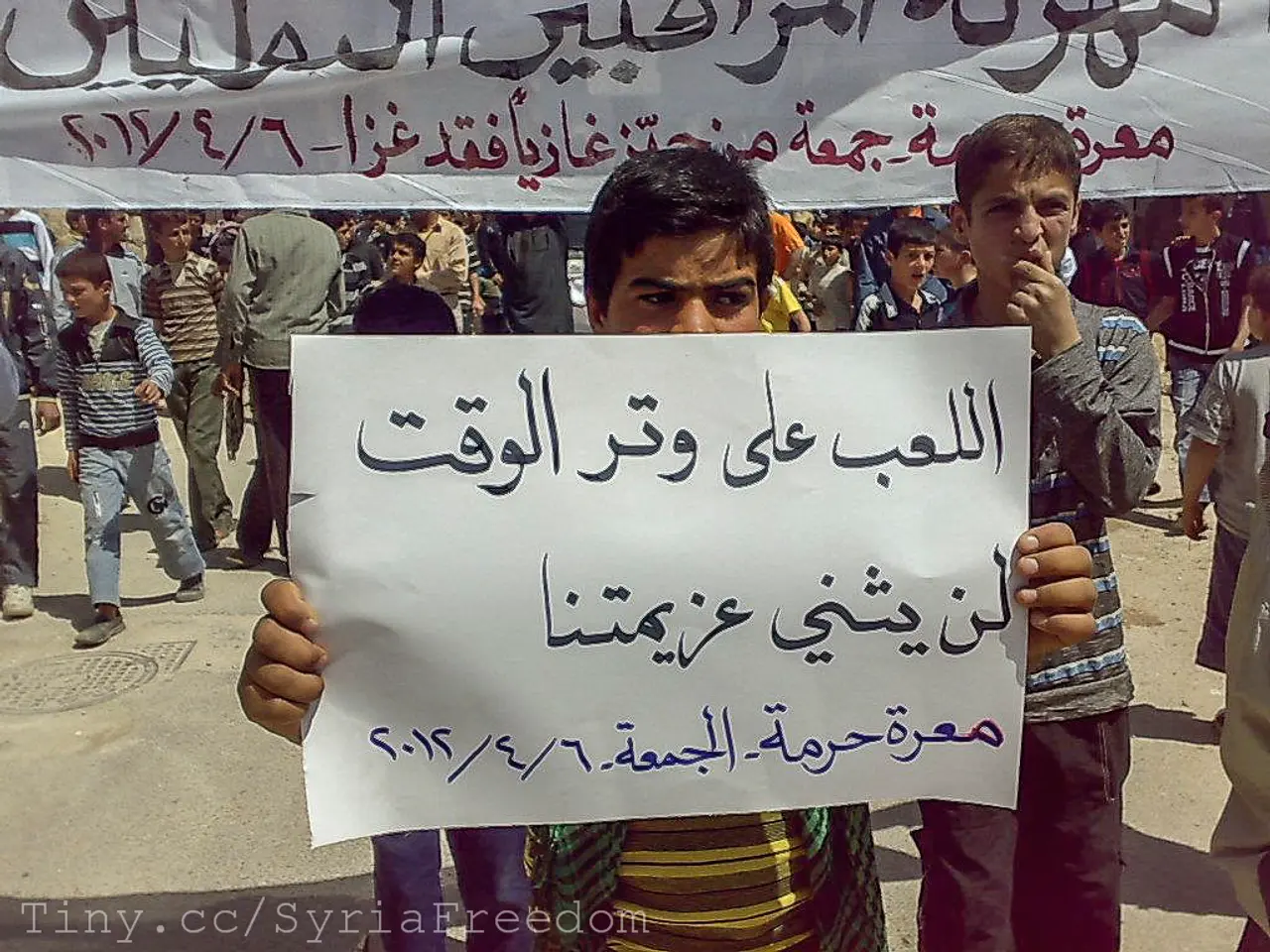Post-Yazidi deportations, Woidke seeks to re-examine the situation - Following the expulsion of the Yazidis, Woidke is looking to handle the matter.
The deportation of a Yazidi family from Brandenburg, Germany, last Tuesday, despite an urgent court injunction, has sparked a wave of criticism over asylum and deportation policies. The family, which includes four minor children who had been integrated into local schools and communities since 2022, was sent back to Iraq, raising concerns about lawful procedures, protection for genocide survivors, and integration considerations.
Key points from the critical review and potential policy implications include:
- Judicial timing and procedural fairness: The family was deported hours before an urgent appeal was accepted by a court, suggesting that deportations may be carried out prematurely without full judicial review, undermining legal safeguards.
- Protection of genocide survivors: Yazidis have endured genocide by IS in Iraq, so deporting them to a dangerous and unstable region risks violating international protection principles. This has raised ethical and legal objections given their trauma background.
- Integration and family welfare: Deporting well-integrated children disrupts their stability and violates principles of family unity and child welfare.
- Broader fear and anxiety among Yazidi and minority communities in Germany: Deportation notices to other Yazidi families have led to persistent insecurity about their future and legal status in Germany.
- Political backlash and advocacy: Germany's increasing deportation flights, denounced by refugee councils and advocacy groups, highlight a shift toward a more hardline stance on migration in some federal states, raising concerns about human rights and asylum fairness.
Potential changes in policies and next steps could include:
- Stricter adherence to judicial processes: Authorities may need to ensure that deportations do not proceed before legal appeals and injunctions are fully resolved to avoid unlawful removals.
- Enhanced protections for genocide survivors and vulnerable minorities: Policymakers might introduce specific exemptions or safeguards recognizing trauma and risk in home countries.
- Improved coordination between federal and state authorities: To prevent rushed deportations and contradictory decisions.
- Greater transparency and consultation with refugee advocacy groups: To balance enforcement with human rights.
- Review and possible reform of asylum procedures: To ensure fairer, more timely assessments that account for special circumstances such as integration of children and ongoing country risks.
In summary, the critical review highlights that this case exemplifies systemic weaknesses in Germany’s current asylum and deportation framework regarding vulnerable minorities, urgent legal safeguards, and humane integration considerations. Public, political, and judicial pressures may drive reforms aimed at preventing similar outcomes in future cases.
Noteworthy developments include an urgent application for the family's return, pending appeals, and a critical review of the case announced by Dietmar Woidke, Minister President of SPD. The family's lawyer, Kareba Hagemann, is considering an appeal, while the Ministry of the Interior currently sees no possibility for a return. The uncle of the children made an appeal to the public on Instagram. The Federal Ministry of the Interior wants to wait for this appeal before taking further action. The court also changed the asylum request of the family from "obviously unfounded" to "unfounded" and rejected their lawsuit against the rejection of their asylum application from 2023.
In light of the court-ordered deportation of a Yazidi family, despite their impressive integration and the ongoing turmoil in their home country, the politics surrounding Germany's asylum and deportation policies have come under intense scrutiny. This scrutiny is well-founded, as the case exemplifies flaws in the current system, particularly with regards to protection for genocide survivors, judicial fairness, and humane integration considerations. Crucial policy adjustments could include stricter adherence to judicial processes, enhanced protections for vulnerable minorities, improved coordination between authorities, greater transparency, and a possible review of asylum procedures to ensure fairness and timeliness.







